Extruded Soybean Meal Production Plant in Ukraine
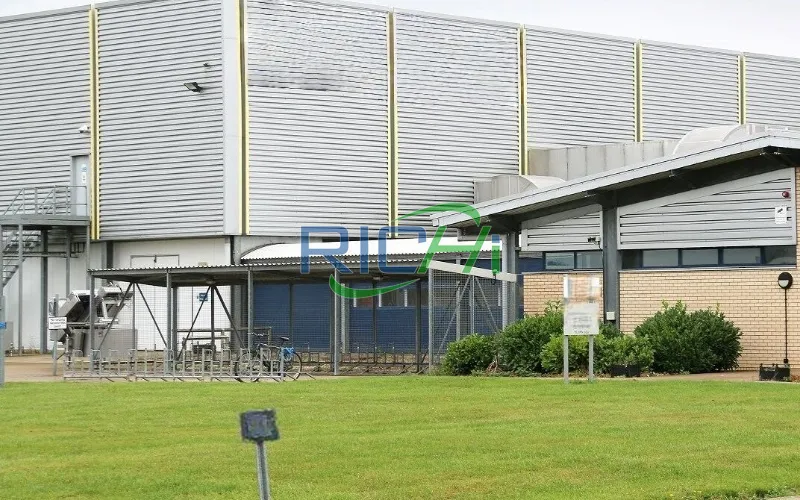
RICHI MACHINERY
overview
This case study details the successful launch of a modern extruded soybean meal production plant in Ukraine, a strategic initiative by a forward-thinking local agribusiness holding. Located in the fertile Cherkasy Oblast, this project was conceived to address a critical gap in the regional market: the transformation of raw, locally grown soybeans into a high-value, nutrient-dense animal feed ingredient. By moving beyond primary agriculture into value-added processing, the client aimed to stabilize revenue streams and contribute to Ukraine’s position as a key player in the global food chain.
The project centers on a high-capacity, automated production line installed within a newly constructed 3,000 m² industrial facility. The plant is engineered for an annual output of 30,000 metric tons of premium extruded soybean meal, operating at a consistent throughput of 12.5 tons per hour. With a total capital investment of $1.2 million, including a $650,000 equipment package from RICHI Machinery, this facility exemplifies how modern technology can unlock greater value from Ukraine’s rich agricultural resources. This extruded soybean meal production plant in Ukraine not only serves domestic livestock and poultry farms but also creates a valuable export commodity.
12.5T/H
capacity
$650,000
investment
Ukraine
location
Feed
project type
RICHI MACHINERY
Project Background: From Field to Feed Mill
Ukraine, often called the “breadbasket of Europe,” possesses some of the most fertile chernozem soil in the world, making it an ideal region for soybean cultivation. The client, a diversified agribusiness with significant landholdings, historically generated most of its income from selling raw agricultural commodities. However, they recognized the immense opportunity in integrating vertically into animal feed production.
The primary motivation for establishing this extruded soybean meal production plant in Ukraine was multifaceted:
- Unlocking Nutritional Value: Raw soybeans contain anti-nutritional factors like trypsin inhibitors, which prevent animals from fully utilizing their protein. Extrusion cooking effectively destroys these compounds, transforming soybeans into a highly digestible feed ingredient.
- Economic Resilience: By processing their own soybeans, the client creates a captive market for a portion of their harvest, insulating themselves from the price volatility of the international commodity market.
- Import Substitution and Export Potential: The Ukrainian livestock sector has historically relied on imported protein meals. This plant helps reduce that dependency while also creating a surplus for export to neighboring EU countries and the Middle East.
- Infrastructure Development: The project creates skilled jobs in a rural area and stimulates local economic activity beyond traditional farming.
The selection of a 12.5 t/h capacity was a strategic decision, balancing the scale needed for commercial viability with a manageable initial investment and the ability to scale up in the future as market demand grows.
RICHI MACHINERY
Raw Material Sourcing: A Home-Grown Advantage
The most compelling strength of this extruded soybean meal production plant in Ukraine is its seamless integration with the client’s own agricultural operations. The plant is strategically located near their soybean fields and existing grain storage infrastructure, ensuring a consistent, traceable, and cost-effective supply of raw materials.
The entire production process is built around a single, high-quality input: non-GMO Ukrainian soybeans. The client enforces strict intake protocols, requiring low moisture content and high protein levels to guarantee optimal processing efficiency and a superior final product. The only other materials required are woven polypropylene bags for packaging the finished meal.
Table: Raw Material and Utility Profile
| Category | Item | Annual Consumption | Key Specifications | Storage & Logistics |
| Raw Material | Soybeans | 30,000 tons | Non-GMO, Protein >35%, Moisture <13% | 5,000-ton capacity silo; direct from farm |
| Packaging | Woven Bags | 600,000 units | 50 kg capacity, UV stabilized | Dry, indoor storage area |
| Utilities | Electricity | 1.0 million kWh | Regional grid supply | — |
| Water | 360 m³ | Municipal network | For staff facilities only | |
| Steam | 1,080 m³ | From natural gas-fired boiler | For the conditioning process |
RICHI MACHINERY
Production Process: The Full-Fat Extrusion Advantage
The technology deployed in this extruded soybean meal production plant in Ukraine is the full-fat extrusion process. Unlike solvent extraction, which removes the oil, this method processes the whole bean, preserving the valuable inherent energy and creating a high-protein, high-energy feed ingredient ideal for poultry, swine, and dairy rations.
A Detailed Look at the Manufacturing Sequence:
- Intake and Pre-Cleaning: Soybeans are delivered from on-farm storage and pneumatically conveyed into the plant’s main intake silo. The beans are then metered via a screw conveyor into the processing line, where they pass through a vibrating screen (XZS1000) to remove any remaining field debris, dust, and foreign materials, which are collected for disposal.
- Grinding: The cleaned whole beans are fed into a high-capacity hammer mill (SFSP-Y60P0K). Reducing the beans to a consistent meal is a critical step, as it creates a uniform particle size that ensures even heat and moisture penetration during conditioning and extrusion. This stage is a primary source of dust and is controlled by an integrated negative pressure system.
- Conditioning and Extrusion The soybean meal is introduced into a preconditioner, where it is mixed with live steam. This hydrates the meal and begins the starch gelatinization process. The conditioned meal is then fed into the RICHI single-screw extruder. Within the extruder barrel, the combination of heat, pressure, and mechanical shear thoroughly cooks the meal, denaturing proteins and completely deactivating anti-nutritional factors. The superheated, pressurized product expands dramatically as it exits through the die plate.
- Cooling and Drying: The hot, expanded extrudate is conveyed into a vertical stacked cooler/dryer (SDH-10). Ambient air is forced through the product bed, simultaneously cooling it and reducing moisture to a shelf-stable level (below 12%). This step is crucial for product preservation and prevents caking during storage and transport.
- Packaging and Storage: The final extruded soybean meal is transferred to a bulk storage bin. An automated packing scale (DCS-50) accurately fills 50 kg woven bags, which are then sealed, palletized, and moved to the finished goods warehouse, ready for distribution to feed mills and integrated livestock operations.
RICHI MACHINERY
Core Equipment: Engineered for Efficiency and Reliability
For this extruded soybean meal production plant in Ukraine, the client required a robust and automated line capable of continuous, high-volume operation. RICHI Machinery delivered a complete, integrated system designed for low energy consumption per ton of output and minimal maintenance. The total equipment investment was $650,000.
Table: Key Production Equipment Overview
| Process Stage | Equipment | Model / Specification | Qty | Primary Function |
| Material Handling | Screw Conveyor | LSS Series | 1 | Controlled horizontal feeding |
| Bucket Elevators | DTG Series | 3 | Enclosed vertical transport between stages | |
| Pre-Processing | Vibrating Screen | XZS1000 | 1 | Final cleaning and removal of impurities |
| Surge Bin | 1.8 m³ | 1 | Ensures consistent feed to the grinder | |
| Size Reduction | Hammer Mill | SFSP-Y60P0K | 1 | Reduces whole beans to a uniform meal |
| Extrusion & Cooking | Single-Screw Extruder | RICHI 200ES | 1 | The core reactor for cooking and deactivating anti-nutrients. |
| Post-Extrusion | Cooler/Dryer | SDH-10 | 1 | Stabilizes the product by reducing heat and moisture |
| Dust Control | Pulse-jet Bag Filter | 10000 m³/h | 1 | Captures dust from the grinding operation |
| Cyclone Separator | 10000 m³/h | 1 | Captures dust from the cooling operation | |
| Finishing | Automated Packing Scale | DCS-50 | 1 | Precision weighing and bagging for final product |
RICHI MACHINERY
Environmental Management and Operational Sustainability
The extruded soybean meal production plant in Ukraine was designed with a strong commitment to environmental stewardship, focusing on efficiency and minimal emissions.
- Air Emissions Control: The primary environmental aspect is particulate matter. Dust generated at the hammer mill and cooler is efficiently captured by a dedicated baghouse filter and cyclone separator, respectively. The filtered air is combined and exhausted through a single 15-meter stack, ensuring full compliance with Ukrainian environmental standards.
- Water and Waste Management: The production process itself is a net consumer of steam, not water. The only water usage is for employee sanitation in the office and locker rooms. Sanitary wastewater is treated in a modern, compact on-site treatment unit. Solid waste is minimized; impurities from cleaning are disposed of responsibly, and all dust collected by the air filtration systems is pure soybean meal, which is reintroduced into the product stream, resulting in virtually no process waste.
- Energy Efficiency: The steam boiler is configured to run on natural gas, a cleaner-burning fuel, and the entire electrical system was designed with high-efficiency motors and variable frequency drives to reduce power consumption.
RICHI MACHINERY
Economic Viability and Strategic Market Position
The market for high-quality protein meals in Eastern Europe and the Middle East is substantial and growing. This extruded soybean meal production plant in Ukraine allows the client to compete effectively in this market with a superior, full-fat product.
Investment Breakdown:
- Land & Building: (Utilized existing owned industrial zoned land)
- Machinery & Equipment (from RICHI): $650,000
- Civil Works & Installation: $400,000
- Working Capital & Initial Inventory: $150,000
- Total Project Investment: $1,200,000
The business case is strong, driven by the significant price premium that extruded full-fat soybean meal commands over raw soybeans. Given the plant’s capacity and favorable operating costs, the project is forecasted to achieve a complete return on investment in approximately 3 to 4 years.
RICHI MACHINERY
The RICHI Partnership: Delivering a Turnkey Solution
The client selected RICHI Machinery based on our proven expertise in oilseed extrusion and our ability to deliver a fully integrated production line. For this extruded soybean meal production plant in Ukraine, our collaboration included:
- Comprehensive Process Design: We engineered the entire flow from raw intake to bagged product, ensuring optimal equipment sizing and layout for the target capacity.
- Focus on Nutritional Quality: Our extrusion experts worked to fine-tune the temperature, pressure, and retention time parameters to guarantee the complete destruction of anti-nutritional factors, maximizing the feed value for the end customer.
- Commissioning and Operational Training: Our engineers were on-site to supervise installation, conduct commissioning, and provide hands-on training to the client’s operational and maintenance teams.
- After-Sales Support: We established a local spare parts inventory and provide ongoing remote technical support to ensure maximum plant uptime.
RICHI MACHINERY
A Blueprint for Agricultural Value Addition
The successful commissioning of this extruded soybean meal production plant in Ukraine serves as a powerful model for agribusinesses in resource-rich countries. It demonstrates that strategic investment in processing technology is the key to transitioning from a commodity exporter to a producer of high-value finished goods.
The global demand for sustainable animal protein is relentlessly increasing, and with it, the need for high-quality feed ingredients. For nations like Ukraine with vast agricultural potential, establishing modern processing facilities like this extruded soybean meal production plant in Ukraine is not merely a profitable venture; it is an essential step towards securing long-term economic growth and food security.
Are you looking to add value to your agricultural production?
Contact RICHI Machinery to explore how we can help you develop your own processing plant. From initial concept to operational facility, we provide the technology, expertise, and partnership for success.
● RICHI MACHINERY
RICHI Service

● Consulting
Customer Consultation
We want to have a deep understanding of your industrial process, to know your exact needs of feed, wood, biomass, fertilizer or other pellet processing.

● Design
Production Plant Design
Based on your unique situation and industrial process, we will tailor complete pellet plant you need, and inform you of every additional detail that could facilitate operation, minimize total cost.
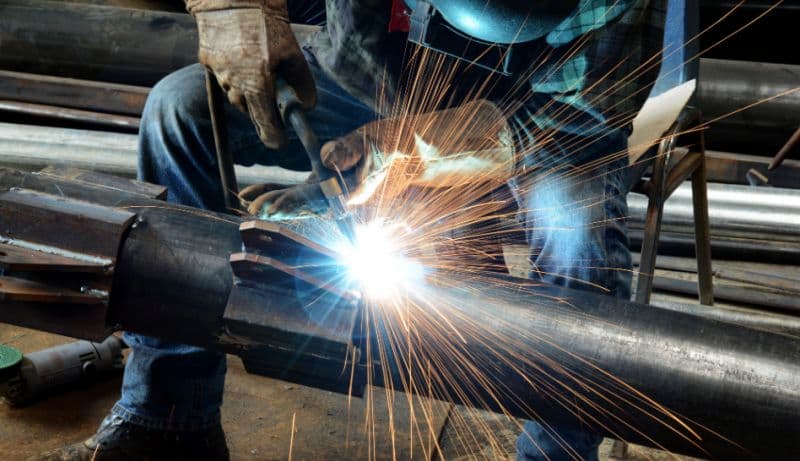
● Manufacturing
Equipment Manufacturing
The critical components of the of the complete pellet production line equipment are built in our own workshops in Asia. Additional equipment is manufactured by our worldwide network of reliable partners.
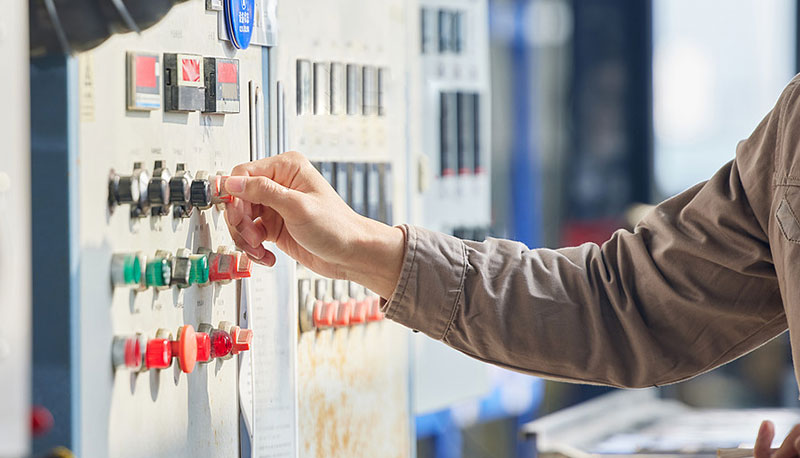
● Testing
Quality Inspection & Testing
Before leaving the factory, all equipment will be inspected by the quality inspection department. We can also provide customers with testing services from a single machine to a complete pellet plant system, and provide you with real actual data for “worry-free use.”
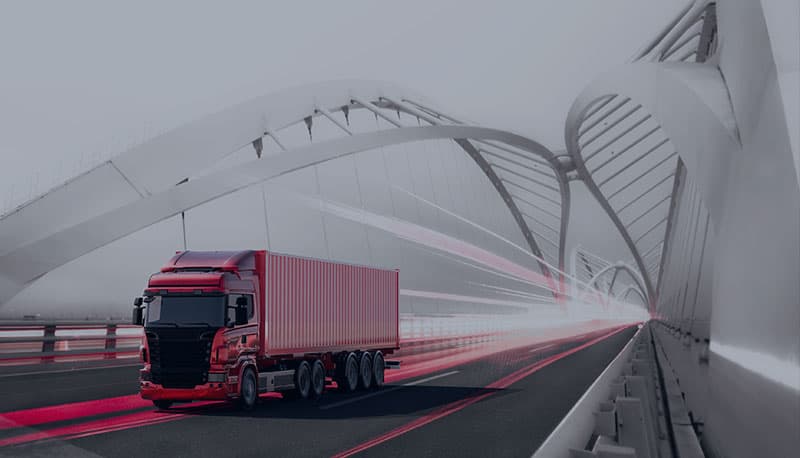
● Delivery
Equipment Delivery
In equipment boxing and packaging, we adopt professional packaging and modular solutions to ensure the safe and non-destructive delivery of pellet plant equipment.
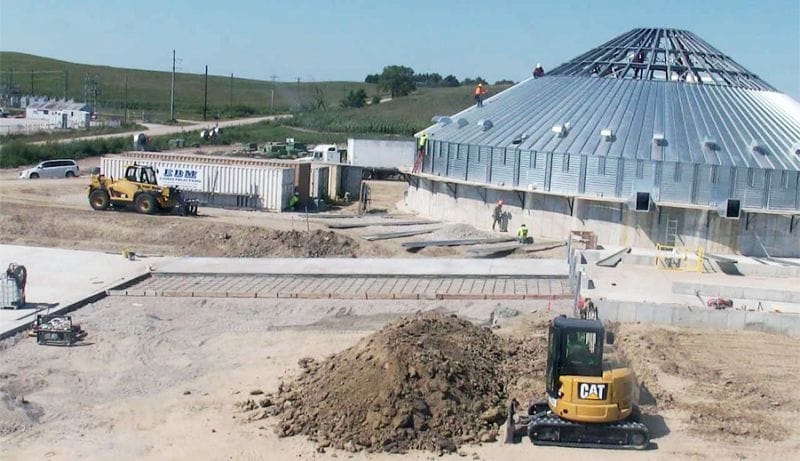
● Installation
Installation & Commissioning
Whether you choose your own subcontractor for the erection phase or you want to install everything together with us, a Richi supervisor will be around to make sure everything is mounted in a safe and thorough way.

● Training
Staff Training
We provide comprehensive training for the technicians of each project. We can also continue to provide support for the technicians during latter project operation.
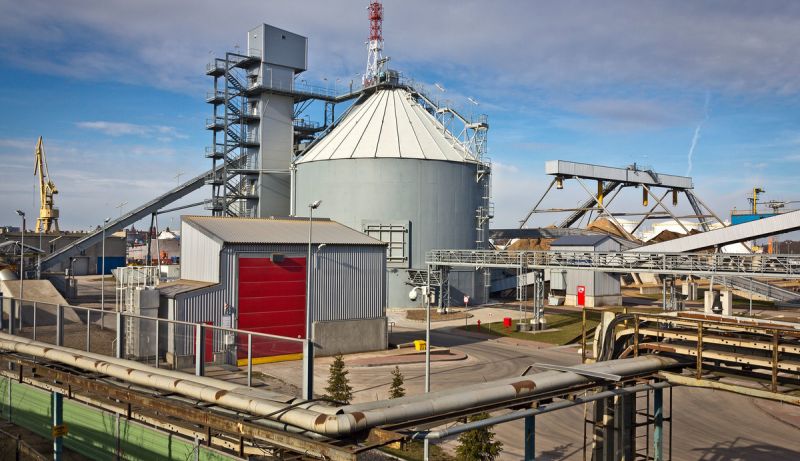
● After-sales
Project Follow-Up
When everything is up and running our Richiers will help you further whenever needed. We are ready to answer your call 24/7.We’ll also visit you regularly to learn about your needs.
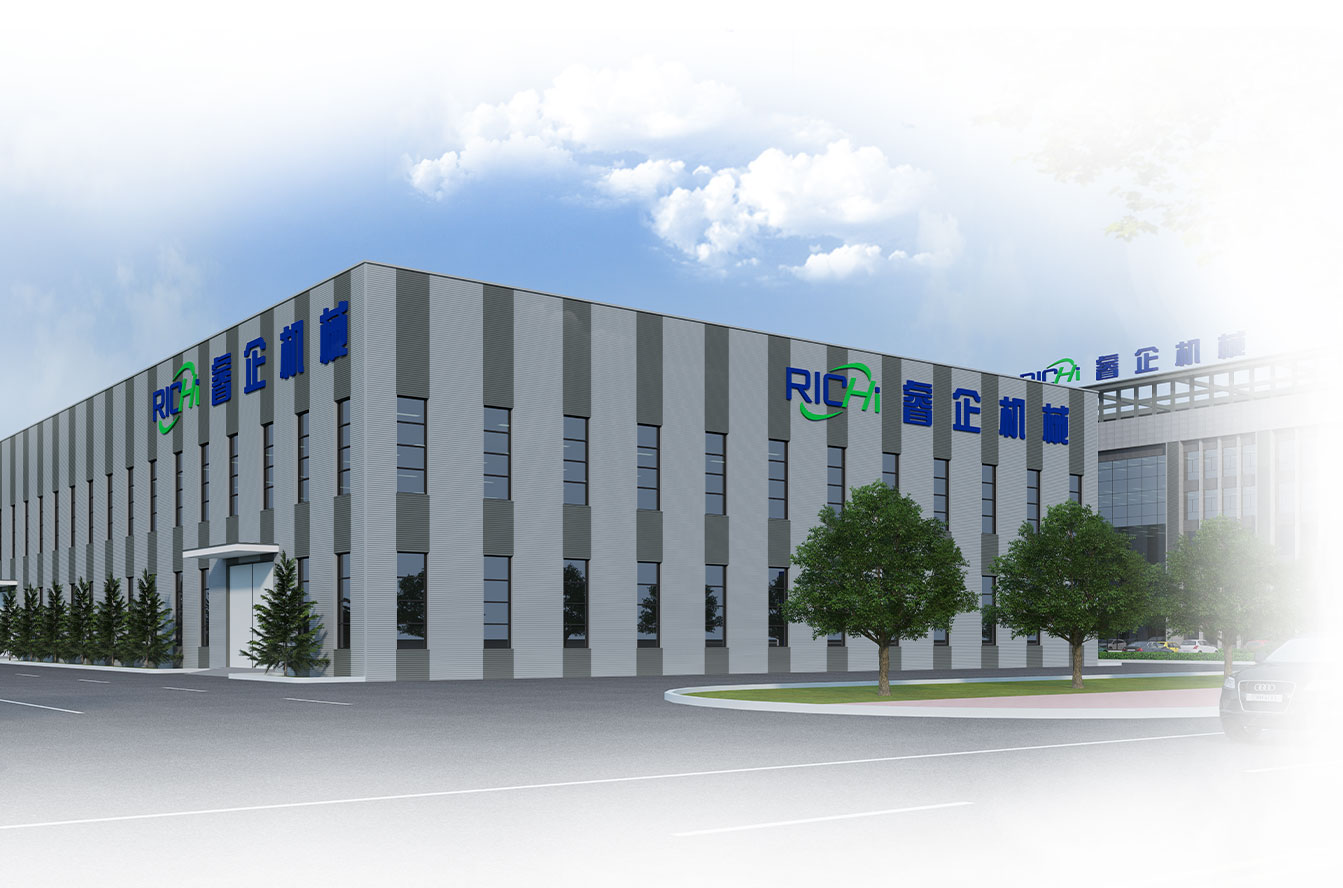
Who we are
RICHI Machinery is one of the world’s leading suppliers of technology and services for the animal feed, aqua feed and pet food industries, also the largest pellet production line manufacturer in China.
Since 1995, RICHI’s vision to build a first-class enterprise, to foster first-class employees, and to make first-class contributions to society has never wavered.
In the past three decades, we have expanded our business to a wide range of areas, including animal feed mill equipment, aqua feed equipment, pet feed equipment, biomass pellet equipment, fertilizer equipment, cat litter equipment, municipal solid waste pellets equipment, etc.

1995
RICHI Established

2000+
Serving More Than 2000 Customers

120+
RICHI Employees

140+
Exported To 140 Countries


